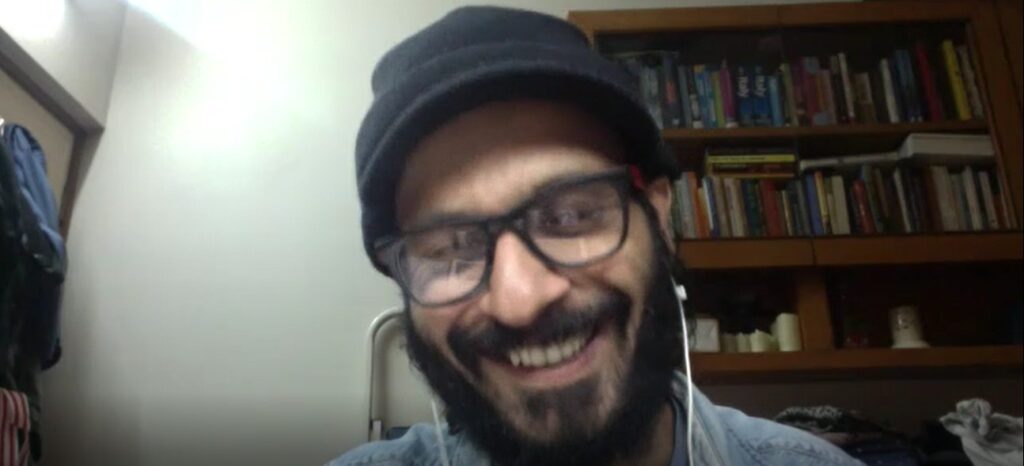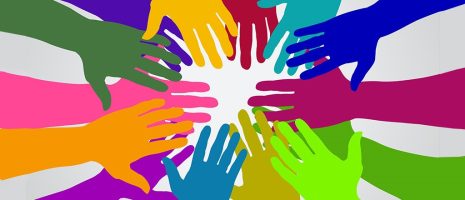By Gabriel Perez

I feel the impulse to start this article by saying the following words: This was spectacular, eye-opening, and so gratifying to do! I spent an hour talking with Indian physical actor Pratik Motwani, and it went beyond what I thought it would be. Right at the start of the Zoom call, Pratik’s energy and mine connected and flowed in such an easy-going way. Charismatic and magnetic, we began the conversation with how rewarding and uniting this festival has been and went off from there. Pratik was one of the Devised Theatre respondents for this year’s festival.
Beginning the practice of his craft in Mumbai, Pratik trained in Indian Mask Performance and performing Street Theatre. His mentor, Deepal Doshi, introduced him to the possibility of formal training and he decided to pursue said possibility. He graduated with an MFA from the Dell’Arte International School of Physical Theatre.
Something that captured my curiosity was how my fellow artist talked about his craft as a form of expression. Pratik embraces the training he received in his native land as well as his Western training, while having the clear recognition of his culture and how it has shaped him to be as a performer and a person. Halfway through the conversation, I felt as if we were just two theatre geeks talking about how we perceived movement and voice. As a physical actor myself, I was in awe of something he said about the voice-body connection:“80% of communication happens from the body. When we say subtext, it means it lives in the body. Even voice is part of the body. Out of the 20% of voice, 95% happens through tone and inflection, and not through text.” This part of the conversation led us to talk about something we both have in common: an accent. Hearing from Pratik about this hit close to home. “… there are things in there that come out, in the way we speak English, and those are the things we should hold on to, not give up on. That’s what our thing is. That is our way of expressing and it’s precious.”
As an actor living in the United States, something that seems or is deemed by many as “necessary” is to neutralize the accent, or sound more “American.” Nonetheless, it feels many times like a contradiction to do so. Theatre is about bringing a part of yourself into a character and into a story, but isn’t the way we sound in a non-native language a part of us? Isn’t the process of learning a new language not something that could be added to a character with the intention of being true to yourself, and subsequently the craft itself? Things to think about…
Pratik threw me a big eye opener, and it was the different in communication and space dynamic in India. When training here in the U.S. what he would feel is passion would be mistaken for aggressiveness. This made me notice and acknowledge on a deeper, more concrete level, that theatre is about embracing the personal and exploiting it in your storytelling. Pratik brings this up when talking about physical theatre and devised work: “In that [physical theatre] you get to explore the nuisances of how expression lives within cultures…physical expression is a great study of how lines and curves live in different cultures.”
Personally, I wish the conversation would have kept going for double or triple the amount of time it went from. Even thought I had heard the same words being said, it felt so much more meaningful when coming from Pratik. Obviously, the Indian accent is like music to the ears, that is not up for discussion. It had to do with the fact that it was another person of color with a similar story to mine saying it. I was thinking “this man has experienced certain things or events the same way I have, if not then in a very similar way”. It is inspiring and jaw-dropping to see a colleague in the craft unapologetically embrace culture and diversity as joyfully and easily as Pratik Motwani does. Post-pandemic, I hope to be able to see him perform what I know will be a jaw-dropping piece of Devised Theatre. If he’s taking in people under his wing, I know I would want to be one of those lucky people.






